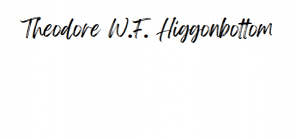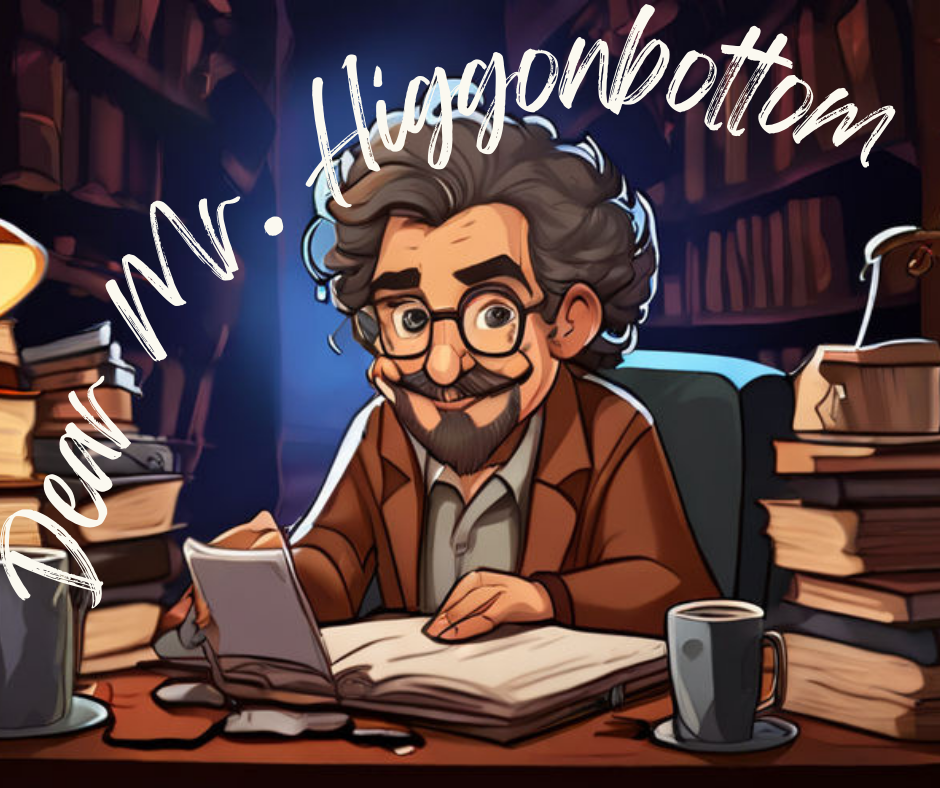How Do Ghostwriters and Authors Resolve Creative Differences?
January 22, 2025
Dear Mr. Higgonbottom,
If I choose to hire a ghostwriter to help write my autobiography or memoir, what role will I play in the writing process?
Dear Aspiring Memoirist,
The ghostwriter-client relationship is a unique creative collaboration. You provide the initial idea or story, and your ghostwriter brings their narrative skill to shape that story. Like any successful partnership, it requires trust, communication, and an understanding of each other’s roles. Here are some guidelines to help you navigate the process:
Understand the Process.
Your ghostwriter likely has an established process, so it’s important to know what to expect. They may prepare a creative brief to provide clarity and direction on how to organize and write the book. You’ll be asked to answer questions and participate in interviews. Throughout the process, you will need to provide feedback and communicate actively with your writer to ensure the project develops in line with your goals.
Communicate Your Objectives.
What are your goals for the project? Is it to tell a personal story or to create a narrative about your family history, for example? What do you want the reader to take away from it? Make sure to clearly communicate your objectives to your writer during the planning and outlining stages, before the actual writing begins.
Give Clear Direction.
Be sure to specify any elements you want included in the book. As mentioned earlier, preparing a creative brief can be helpful. This brief should outline the overall direction, target audience, key story points, desired tone and style, and any key messages you want conveyed.
Respect Deadlines and Boundaries.
Submit any requested materials, feedback, and payments on time to keep the project on track. Likewise, respect your writer’s creative process. Avoid making too many last-minute requests or interruptions, as these can disrupt the workflow.
Provide Constructive Feedback.
You’ll be asked to provide feedback on outlines, drafts, and revisions throughout the process. Review your writer’s work carefully, ask questions where needed, and offer clear, constructive feedback. Communicate what you like and don’t like, and explain why. This will help your writer deliver work that aligns with your vision.
Navigate Creative Differences.
You may not always agree with the choices your writer makes, and this can be one of the more challenging aspects of the ghostwriting process. Be open to alternative ideas and approaches. When discussing creative options, be prepared to explain your rationale and ask your writer to share theirs. Give serious consideration to their suggestions, and respect their expertise as the writer using their narrative skill to craft your story.
Maintain Confidentiality and Ethics.
A ghostwriting partnership is a confidential agreement, and as the client, you are responsible for maintaining that confidentiality. This also means ensuring the work you create together is original and plagiarism-free.
The ghostwriter-client relationship is a partnership and a team effort. It requires that you respect your ghostwriter’s expertise while ensuring the story stays true to your vision. Embracing your role and responsibilities as the client can lead to a finished product that authentically and powerfully expresses your ideas or story—one that you can be proud of.
Happy collaborating!
































